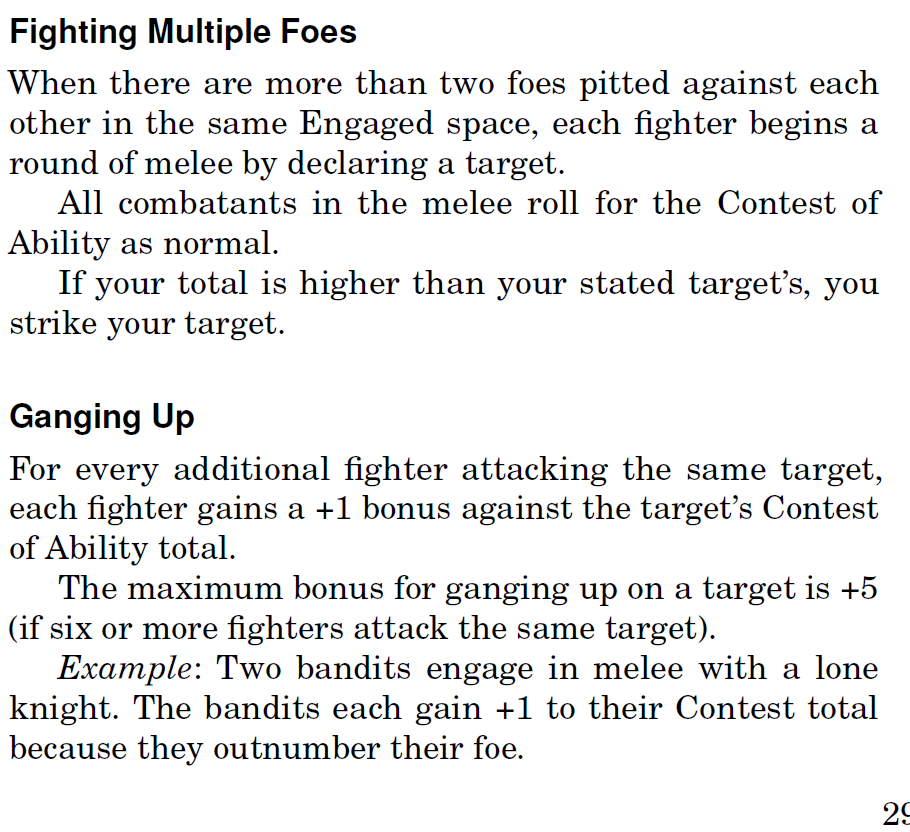I do think that the initiative tokens in Troika! are the attempt to solve this problem. I haven’t tried it, so I don’t understand it deeply.
My method was to make initiative irrelevant for everybody who was intending to fight in melee. You just roll against each other. (Defense only is possible, and necessary to disengage.)
Here’s a snippet from my rules.
In lieu of initiative, you state your goal or target. (Who are you trying to hit?)
Then everybody rolls.
Totals that beat targets’ totals hit.
For groups in melee:

This is all exactly as in AFF2e (p. 59), although I think I have presented it more neatly, instead of tucking the “ganging up” rules into a list of 24 possible modifiers.
After using it for… gosh, more than a year… I’ve given up on the FF way, or rather modified it much further to the point that no addition is required. The FF way has been fun, it works, but it requires too much adding of little digits on the spot (1D+1D+Skill+Trait) and then waiting to hear totals declared. As referee, I found myself jotting down numbers and comparing attackers’ totals to defenders’ totals. Long pauses might ensue. (In combat, fifteen to twenty seconds between dice roll and learning if you hit is a long pause, for my table, and it’s not easy to fill the space with lively combat narrative while adding numbers.)
Exactly what you said: “it was only so-so satisfying and kind of hard to remember.”
I had a way to speed it up drastically with player-facing rolls only, which I called “Fray Mode,” but that too works best in one-on-one combat.
The underlying model for FF combat, T&T, made more sense of group combat. In Tunnels & Trolls:
- Combatants generate combat totals of dice+adds representing their skillful effort. (moments of adding lots of dice ensue, a degree of suspense builds)
(1a. Teams have group totals.)
- The difference between the totals is damage done to loser(s).
(2b. Divide damage evenly among losing side if there’s more than one foe.) (not hard to calculate, really)
- Armor (if any) absorbs damage done to individuals.
Because FF depends on the same 2D total for each fighter, it’s really best for one-on-one combat, for which it was designed and pioneered. Group foes in FF (like swarms of rats) have single stats for the collective.
One lesson I’ve taken from this is that FF systems (like Troika!) should be truly excellent for duet play (referee + 1 player). Referees often ask about recommendations for that. It moves very fast with one or two players only, and I found that to be the case in practice in one-shots, but large melees with many participants strain the combat mechanics by requiring memory of added-up outcomes for half a minute at a time. Basically, AFF is ideal for one-on-one games. (It’s not ideal for large groups.)

